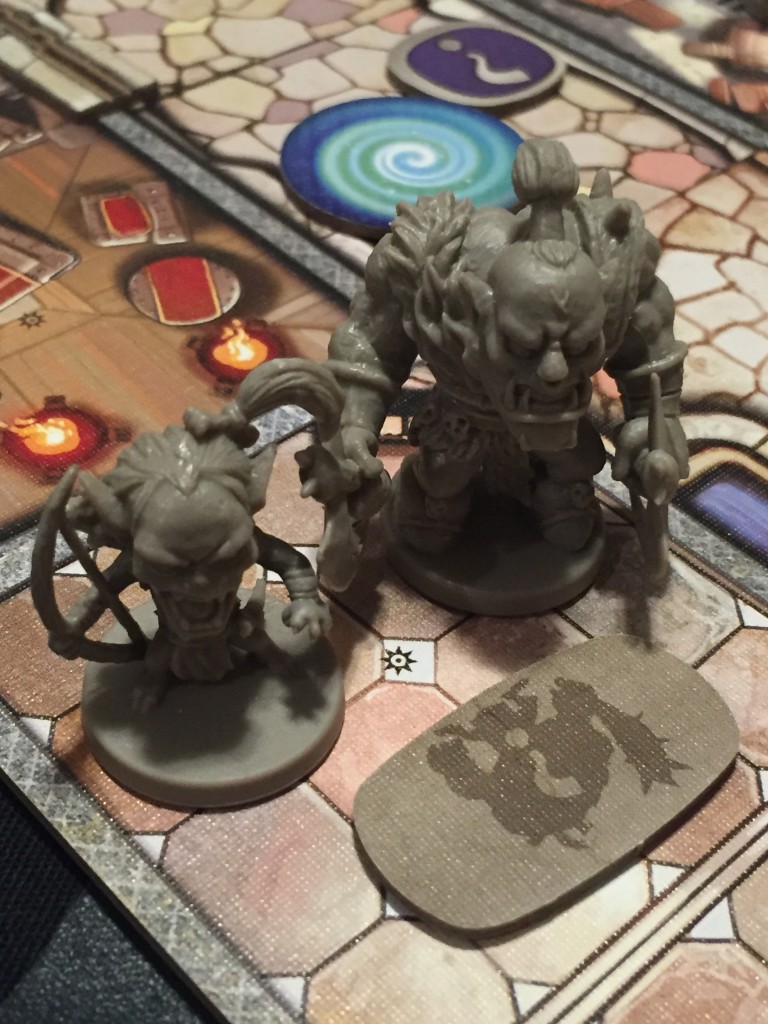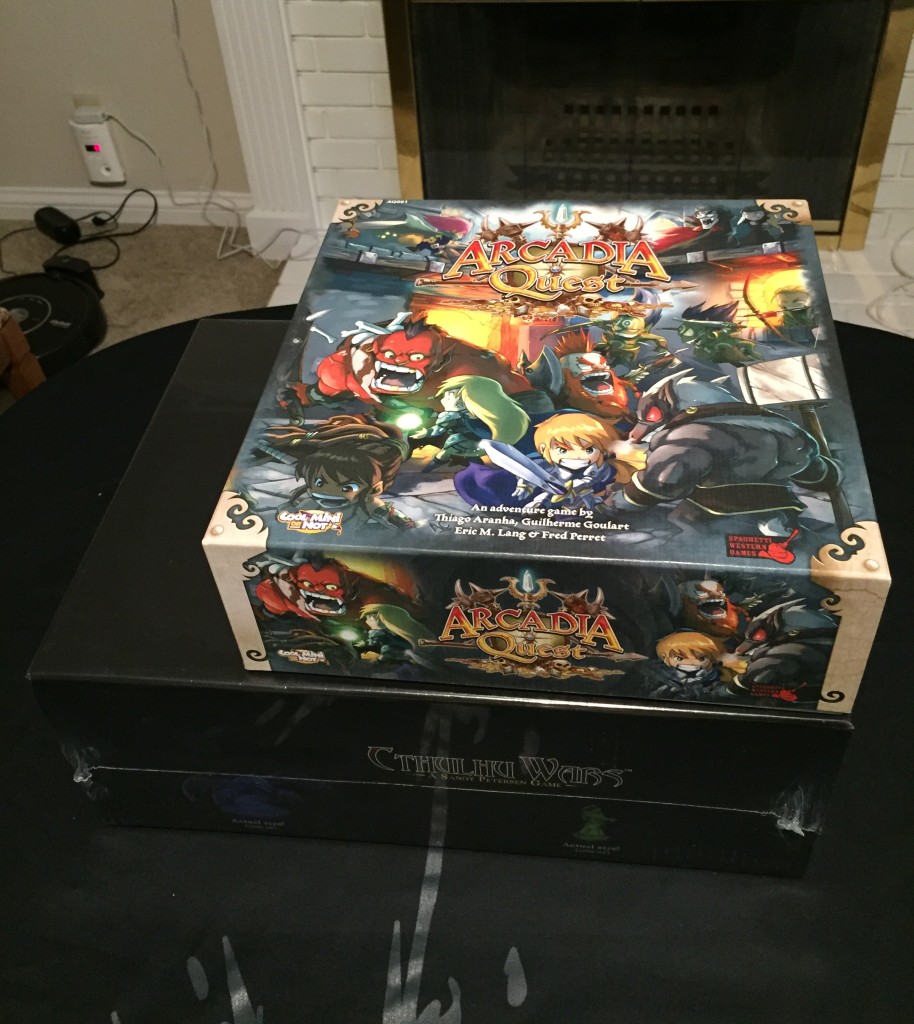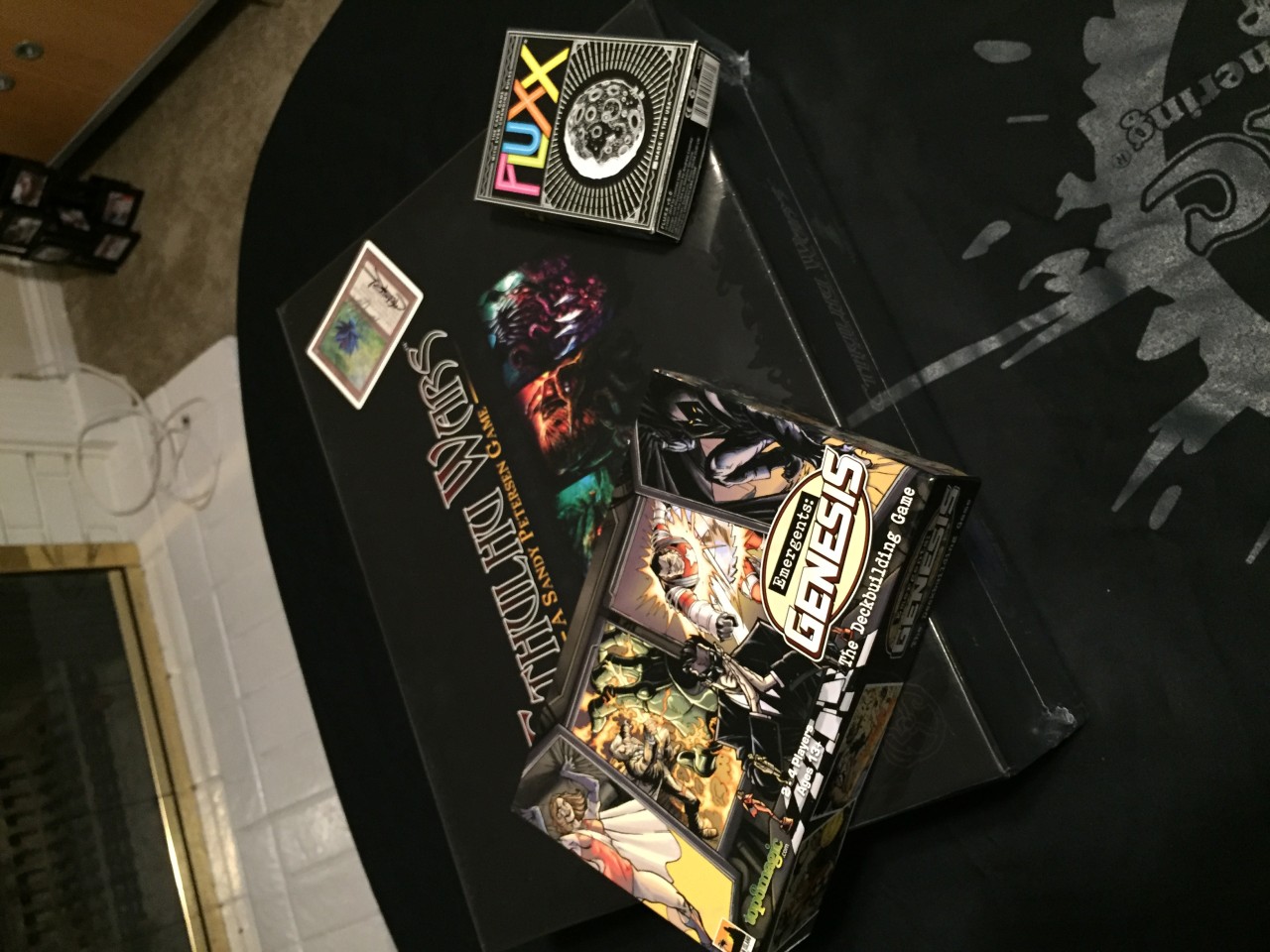I was the president of my high school and my college’s war gaming clubs. So it should be no surprise that I like board games, and the fact that I play D&D and Magic the Gathering as well makes this extend to table top games in general.
There was a time in the 80’s and into the 90’s that it was thought that board games were a dying breed. Sales stagnated and went down and video games seemed to be the replacement. There were not that many new games sold in the USA and the old standbys like Monopoly, Clue and Life were rarely played. Even games like Risk which are more involved than many other games only had a basic level of popularity. All the popular games relied on dice and being random.
In fact, while the then mainstream games were dying out, other games were growing in the background. Dungeons and Dragons is a good example. It started out in a small crowd that liked miniature war games and then hit critical mass and started be played all over the country. Magic the Gathering was release in 1993 and was an immediate hit and has grown in popularity every year since. My war gaming interest introduced me to Diplomacy which I still think is one of the best games I ever played and probably has the most total hours of game play for me in a board game (D&D and MtG best it but are not board games).
Diplomacy was actually a template for the games that would come over to the USA and restart board game playing. They are generally called Euro games or German games. These games tended to have a few distinct features, and one of these was that they did not use dice to control movement or to resolve a game element. They were not a random chase across a board. They also tended to be symmetrical in that each player started off with the same resources. A lot of the games were around gathering resources and building something, not a direct competition to attack and take out the other player. Chess is a good example of the symmetrical start and the non-random game except it is much more combative than the wave of games that came from Europe. These games were competitive, but you generally were not attacking the other player.
One example is Settlers of Catan (which is now just called Catan). This a very typical “German” game right down to as little as possible text on the board or the cards being used in order to increase international appeal. The game uses tiles which are either randomly drawn and placed or placed in a specific manner to make the game as fair as possible for all players. The quality of the components is high compared to the usual American family board game. The rules are simple enough, but allow for deep strategy. The game is a resource gathering and building game, and you can target other players (move the robber to get them) but it also allows for trading between players which rewards social interaction. Last time I played, my 13 year old daughter won the game.
Similar games in component quality and abstraction moved over from Europe to the USA (Puerto Rico and Ticket to Ride are two other examples) and interest in board games grew. The Internet made it easier to discuss the games with other players (www.boardgamegeeks.com is a famous and popular site for this). New designers in the USA and Europe still faced pretty large obstacles in getting a game out. The developer either had to front the large cost of ordering the initial games to be sold, or they had to interest a game company with no past sales to attract them. That problem has recently been solved by crowd funding sites like Kickstarter.com. As crowd funding grew more acceptable and popular, designers could launch a campaign online and raise the funds needed to do the first printing.

Kickstarter not only helped many new Euro Games get started, it also helped to fund a whole new generation of card and miniature based games. I recently started buying games there starting with a superhero card game called Emergents Genesis and I have since bought several others. Also, companies like Fantasy Flight games published quite a few hits without using Kickstarter like Arkham Horror (Call of Cthulhu based) and Star Wars: X-Wing (a miniatures based space combat game using the ships from the Star Wars movies). Game sales grew and grew over the last 10 years and it is now a popular pastime again.
The availability of better and more interesting games is good, and Kickstarter and similar sites are helping fund new games, but it still does not solve the one basic issue of playing board games. – you need a few people to all be available at the same time and place. There are two solutions to that problem plus other options as well. If you play a very established game like Magic the Gathering, it is pretty easy to find a specialty store that will have players plus Wizards of the Coast has an organized play network including a professional tour. MtG is worthy of a blog in and of itself, and I will do one soon.

Very often the same stores that sell MtG and offer play space for it also sell and offer play space for board games. One other increasingly popular option is board game café’s which are coffee shops built around offering play space for games (including supplying compiles of some games) and building a group of players that love games and are there to play. One final option is www.meetup.com which very often has groups of board game enthusiasts who meet several times a month at different public places.
These type of meet-ups are good for someone who travels a lot to strange cities and has lots of nights alone. It is a good way to meet locals and get some games in against new opponents. Maybe even get to play some new games. I have stopped in local stores to play MtG for years when traveling on business and I plan on starting to stop by some board game cafes in the near future.

I’ll list some different games at the bottom of this blog in case you are curious After reading about it. I will be doing game reviews as well like I have been doing book reviews and I have a large stack of games I will be playing through. One thing that is very different from the old games I played are the quality of the components today. The Cthulhu Wars game has detailed game pieces larger than an average banana and the Arcadia Quest figures are also very detailed and in a fun style. Pandemic is a fully cooperative game where the players try to beat the game, not each other and everyone wins or no one wins. If you want a social gathering game that is quick to learn and play, the card game Fluxx where the rules are constantly changing is quite good.

Enjoy the pictures and I even did an unboxing video for Cthulhu Wars. I will try and figure out how to get it onto YouKu so that readers in China can see it.
Games I recommend
This is a classic example of a Euro or German Game
This game is a big commitment in terms of cost, but the playing pieces are amazing and the game play is very deep.
This is the deck building game that got me into Kickstarter. A friend helped to design it and market it. Not a video game even though that is the category.
A fun RPG game in board game form. Nice game pieces.
Card game where the rules are constantly changing
Cooperative game – you all win or you all lose.
Star Wars: The Force Awakens X-Wing Miniatures Game Core Set
Play out the small ship space battles from the movies (many expansions)
Strategy game where the art of a well timed backstab is key to victory
Another classic Euro game

Xin
Fluxx is easy and fun. I want to try other games next time as well.? Never found games so fun, and they trains your reasoning ability too.